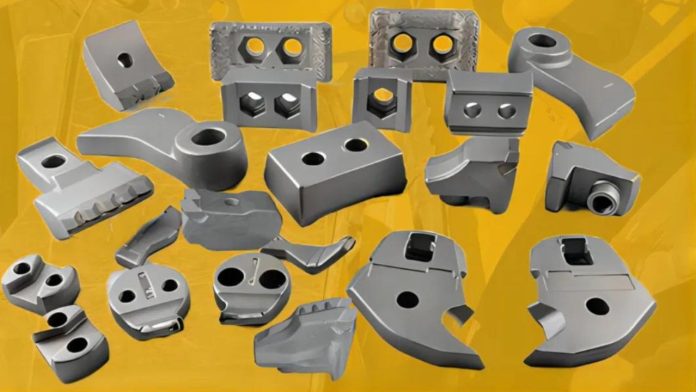Fecon mulchers are high-power machines that work well for forestry, land clearing, and other heavy-duty jobs. They have sharp, resistant teeth which allow them to gnaw through trees, shrubs, and other vegetation. But not every fecon mulcher teeth comes with the same quality. Poor teeth quality is not only a threat to poor performance but also damages the mulcher and causes you to replace it frequently.
Poor Material Quality
A regulating factor is the material that is used to make mulcher teeth. The high quality of this equipment is that they are most often made with carbide or tough steel composites. Low-quality mulcher teeth can be crafted from low-grade steel or alloy which wears out in a shorter amount of time.
Some of the signs which suggest that material quality is poor are:
- Rusting: If the teeth are extremely low-quality, they might even rust after being exposed to moisture.
- Chipping: If the teeth are made with soft materials they can crack.
- Too much wear: Another thing to look for when examining the teeth of a concrete pile cutter is to see if they are wearing down. It is a clear sign that these tools are made from inferior materials.
Inconsistent Manufacturing
Standard Fecon mulcher teeth are also characterized by inconsistency in the manufacturing process. High-quality teeth are designed to work in optimal harmony with one another, whilst low-quality show signs of the machining process that they have been through.
- Low-quality teeth shape: The size and shapes of the individual teeth on a blade may be inconsistent or mismatched – if so, cutting will be uneven which can lead to bad work performance.
- Loose or Poor Fit: If the teeth seem too loose to fit on the mulcher’s drum, then it’s a clear sign that they had been poorly manufactured.
- Poorly finished: Wrapping up a bad artist Picasso, a rough surface or lack of polishing typically means inferior craftsmanship that translates to less durability for the tooth.
Ineffective Cutting Operations
Another visible quality sign is poor cutting performance. Here is a list of performance issues to look out for:
- Stalls quite often: When your Fecon mulcher teeth stalls too frequently, it usually means the teeth are not cutting as they should be, forcing the machine to work harder.
- Slower cutting speed: Although they reduce the time for you, low-quality teeth can slow you down significantly because of the limited amount of material being cut.
Short Lifespan
A good quality tooth, when designed properly can absorb and withstand repeated hits with hard objects such as rocks or dense wood without dullying. However, since low-quality teeth are less durable, they do not last as long and need to be replaced more often.
Indications of a short life span are as follows:
- Replace often: This one is simple and clear when mulcher teeth require too many replacements for the job they were intended to be used on.
- Atelier tedium: Teeth that are well-made keep their edge longer. Otherwise, they are made of low-quality material.
Conclusion
So, with these signs of low-quality Fecon mulcher teeth, you can easily maintain your machiner and prolong its lifespan. Better quality teeth are going to help you save time and money. Good quality fecon mulcher teeth ensure that your machinery works seamlessly. They also offer excellent outcomes in the most demanding applications.







